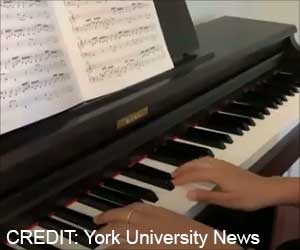Thirty-three patients, under 2 years of age, were included in the study. All were sedated and on mechanical ventilation.
Seventeen patients received live music intervention from a board-certified music therapist for 15 minutes. During the intervention, the music therapist sang lullabies, accompanied on guitar, and invited the patients’ caregivers to sing along.
The other 16 patients heard 15-minute recordings of the same lullabies, performed by the same music therapist. Similarly, caregivers were given the chance to sing, too.
Researchers monitored each patient’s heart rate, respiratory rate, and blood pressure before the intervention and at 15-minute intervals for an hour after it.
They found that babies who heard the live music had an immediate and significant reduction in heart rate and 60 minutes after the music had stopped, their heart rates were still lower than they had been to start with. Whereas recorded music did not yield the same results.
Researchers attribute this disparity to live music’s adaptability. Live music allows to make changes at the moment, whereas with recorded music, it is what it is.
They also discovered that patients who received the live music intervention tended to breathe more slowly and have a lower blood pressure than their counterparts who heard recorded music. These changes were not statistically significant.
In the future, researchers plan to investigate how singing along during a child’s live music intervention affects the mood of the caregiver.
Source: Medindia



